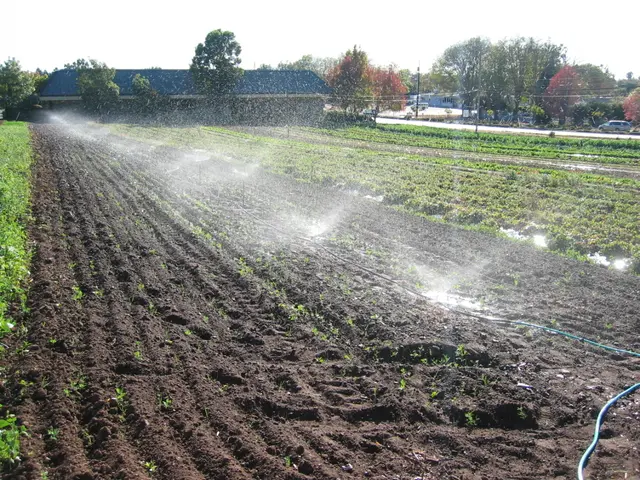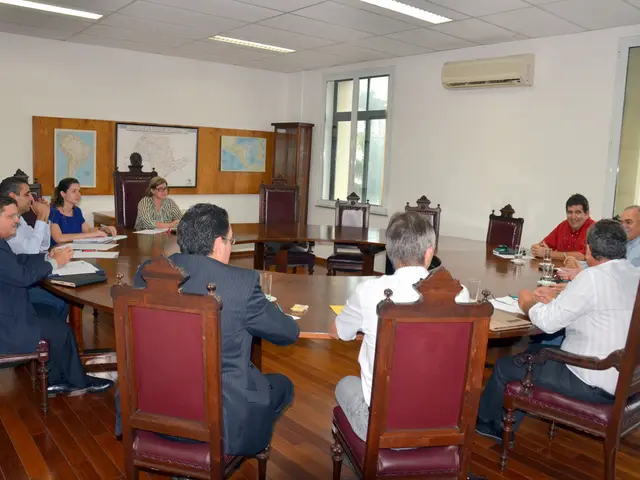Rigorous Border Controls Persist Unabated Under New Administration
Customs and immigration checks persist uninterruptedly. - Customs and immigration checks remain unchanged
There's no evident change in border control procedures on the first day of the new federal government. "We're doing our job just like we always have," stated Stefan Döhn, spokesperson for the Federal Police Inspectorate Trier, at a border control station on the A64 motorway from Luxembourg. "We haven't received any new orders. We're carrying on as usual."
Alexander Dobrindt, the newly appointed Federal Interior Minister representing the CSU, had promised increased migrant rejections and stepped-up border surveillance at Germany's external borders. After his appointment, the first decisions were expected on May 6, 2025.
Since mid-September 2024, border controls were reinstated across all of Germany's external borders. In February, the federal government extended these border controls for another six months, expiring on September 15, 2025. These regulations have been controversial, with some criticizing the extended controls as a violation of European Union (EU) agreements.
Border Clampdown in Focus
At the control station in Trier, law enforcement officers routinely pull over vehicles. Inside a large steel tent at the control point, drivers' documents are scrutinized. Most can continue their journey. Approximately 500 vehicles are checked daily at this location.
The focus of border control initiatives is on apprehending unauthorized immigrants, smugglers, and individuals wanted on outstanding warrants. Döhn confirmed frequent successes, citing recent statistics.
Fluctuating Entries and Rejections
By the end of March, a total of 2,661 illegal entries were documented in Rhineland-Palatinate and the Saarland through the reinstated border controls. Of these, 1,694 individuals hailed from France, 843 from Luxembourg, and 124 from Belgium, according to the Federal Police. A total of 1,166 individuals were refused entry and returned to France, 513 to Luxembourg, and 73 to Belgium. Sixty-five smugglers were arrested. The Federal Police clarified that the figures for March might still undergo minor adjustments. These figures demonstrate that the controls are effective, stated Döhn.
What's Next?
The Federal Ministry of the Interior may issue new orders. "Then we'll see how we'll proceed further," Döhn said. The controls are both time-consuming and labor-intensive but can be implemented swiftly, he added. Additional support from other units and inspections will be provided if necessary.
Controversy and Commuting Woes
Stationary border controls are uncommon in the European Schengen area. In Rhineland-Palatinate, there is still a stationary control point positioned at the A60 highway leading to Belgium. In the Saarland, entry traffic from Luxembourg is controlled in Perl, and from France in Saarbrücken.
Criticism is mounting among commuters working in Luxembourg and returning to Germany. Complications with the border controls on their journey home inconvenience these workers. Around 50,000 German workers commute to Luxembourg daily. Luxembourg voiced a protest against the border control extension with the EU Commission in February.
- Border Control
- Migration
- Luxembourg
- Federal Government
- Trier
- Rhineland-Palatinate
- Saarland
- Federal Police
- France
- Belgium
- Vehicle
- Alexander Dobrindt
- CSU
- Migrants
- Controversy
- Commuters
- Selective Use of Enrichment Data:
- The reintroduction of border controls was initially implemented in September 2024 and extended in February 2025 for six more months.
- The new policies focus on significant rejections of immigrants, increased police presence, higher numbers of rejections, and alignment with EU law. While there will be exceptions for vulnerable groups (children and pregnant women), these measures mark a notable departure from the government's more open approach during the 2015 refugee crisis.
- The changes in policy could lead to a reduction in unauthorized entry, but may also face pushback from the European Commission or EU member states regarding compatibility with European law.
- The reintroduction of border controls in September 2024, extended in February 2025 for six more months, marks a shift in the government's immigration policy, focusing on significant rejections of immigrants and increased police presence.
- At the control station in Trier, law enforcement officers carry out daily inspections, apprehending unauthorized immigrants, smugglers, and individuals wanted on outstanding warrants.
- Criticism is mounting among commuters working in Luxembourg and returning to Germany due to complications with the border controls on their journey home, particularly at the A60 highway leading to Belgium in Rhineland-Palatinate and entry traffic from Luxembourg in Perl, Saarland.
- The selective use of enrichment data, with exceptions for vulnerable groups such as children and pregnant women, could potentially lead to a reduction in unauthorized entry, but may also face pushback from the European Commission or EU member states regarding compatibility with European law.








